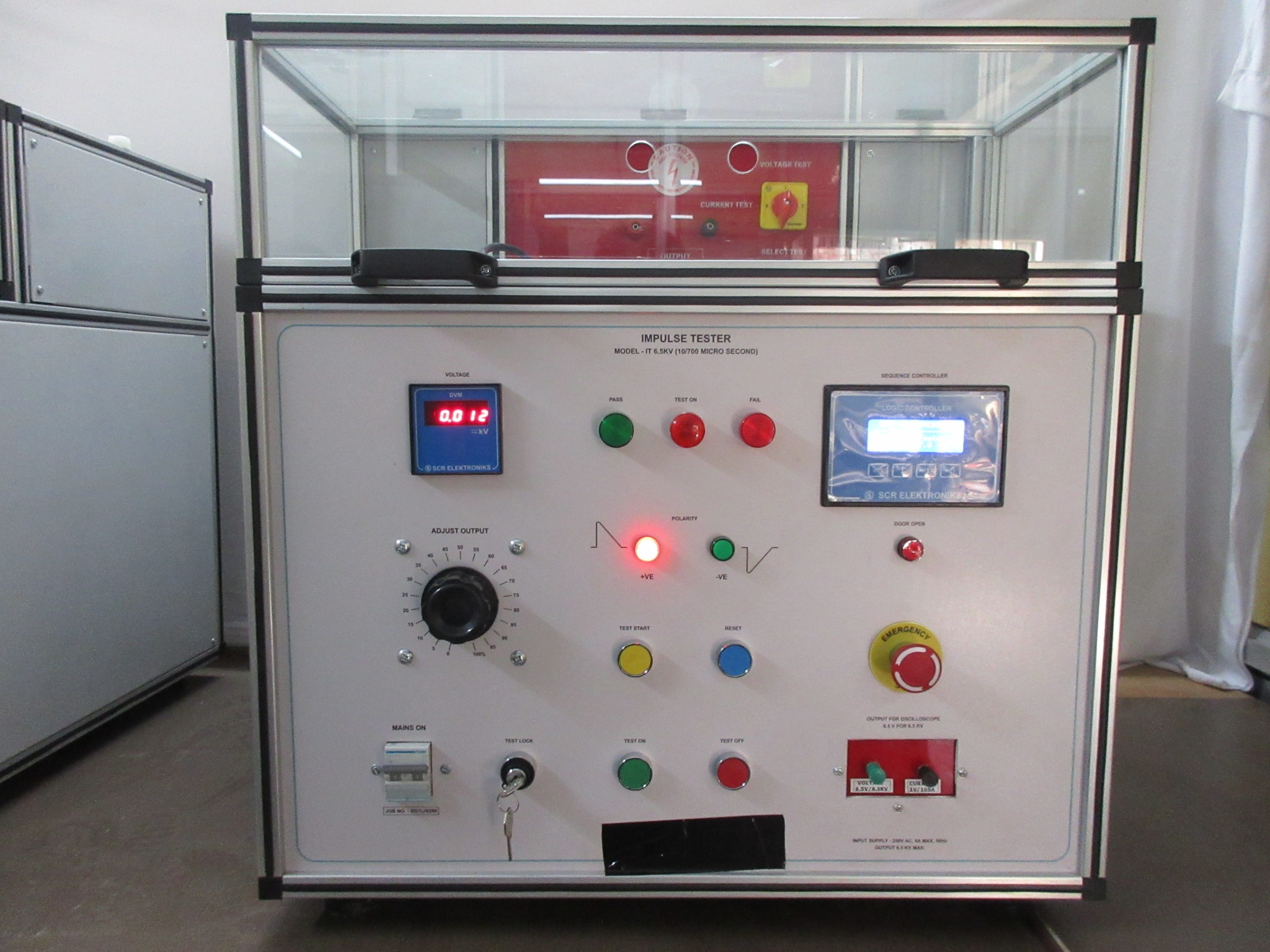Electromagnetic Compatibility(EMC) Testing:
Electromagnetic compatibility (EMC) testing measures the ability of equipment or systems to function satisfactorily in their electromagnetic environment without introducing intolerable electromagnetic disturbance to anything in that environment.Tests We Offer:
Absolute Testing Services is capable of conducting a comprehensive range of EMC tests and providing you with EMC certifications. Depending on your product, this might include:- Antenna immunity to RF voltage
- Antenna input immunity
- Antenna screening effectiveness
- Conducted disturbances immunity
- Conducted emissions (continuous and discontinuous interference)
- Electrostatic discharge (ESD) immunity
- Electrical disturbances from conduction and coupling immunity for vehicles
- Electrical fast transient / burst immunity
- Harmonic current emission
- Harmonics and inter-harmonics immunity
- Immunity from radiated fields
- Immunity to induced voltages
- On-site EMC testing
- Power frequency magnetic field / oscillatory waves immunity
- Power interference
- Power supply conditioning
- Radiated emissions
- Radiated field immunity
- Voltage fluctuation / flicker
- Voltage surge immunity
- Voltage dips / interruptions immunity
- Magnetic field measurement (EMF)
- Electric field measurement (EMF)
- Electromagnetic field measurement (EMF)
- Induced current density due to the electric field (EMF for lightning equipment)

Standards A-TS follow for Testing:
| IEC:61000-4-5 | Electromagnetic Compatibility- Surge Immunity Test |
| IEC:61000-4-2 | Electromagnetic Compatibility- Electrostatic Discharge Immunity test |
| IEC:61000-4-4 | Electromagnetic Compatibility- Electric Fast Transient/Burst Immunity Test |
| IEC:61000-4-8 | Electromagnetic Compatibility- Power frequency magnetic field Immunity Test |
| IEC:61000-4-11 | Electromagnetic Compatibility- Voltage Variations Immunity Test |
Why EMC Testing is required?
EMC testing is necessary to help you meet regulatory requirements, improve product performance and reduce the risk of costly non-compliance. A third-party EMC test lab can conduct conformity assessments and also help to strengthen your competitive position in the market.Surge Test?
Absolute Testing Services has Surge Test Facility upto 10KVA with generator surge current upto8/20µs & Impulse Test Facility having different waveshapes like 1.2/50 µs , 10/700 µs etc. These tests are covered under the following Indian and International standards: IEC:61000-4-5, IEC:61000-4-2, IEC:61000-4-4, IEC:61000-4-8, IEC:61000-4-11, IS 616, IEC 60065, IS 13252, IEC 60950, IS 302 etc.Why Surge Tests Are Critical?
Electrical surge, in simple words, is a sudden spike in electricity in your electrical circuits. Even though surges in general can last for as little as a fraction of a second, it can take massive toll on all electrical appliances and devices that may be connected to the circuit. Surges will cause wires and components to overheat, melt and lead to short circuits, all of which are destructive components. An electrical Component can last well over thousands of hours, and an electrical surge can end that life in less than a second.What Can Be Tested By A Surge Tester?
- Electrical/Electronic Products and their Components
- Luminaries
- Vehicle light (head light, tail light, indicators)
- General Purpose Light (Led Light, Interior & exterior Lights)
- Light used for Railways
- Light used for defence equipment
- Engine and it’s components
- Electrical and Electronics Equipment used by different Defence Organizations
- R & D Products (Electrical and Electronics)
Which Issues Are Only Found With A Surge Test?
To represent surges generated due to lightning, the IEC Standard impulse wave of 1.2/50 µs wave is
generally used. By the use of spark gaps, conditions occurring on the flash over to line are simulated.
The total duration of a single lightning strike is about 100µs, although the total duration of the
lightning stroke may be a few seconds.
These tests relate to the immunity requirements for equipment to unidirectional surges caused by
over-voltages from switching and lightning transients. Several test levels are defined which relate to
different environment and installation conditions. These requirements are developedfor and are
applicable to electrical and electronic equipment.
